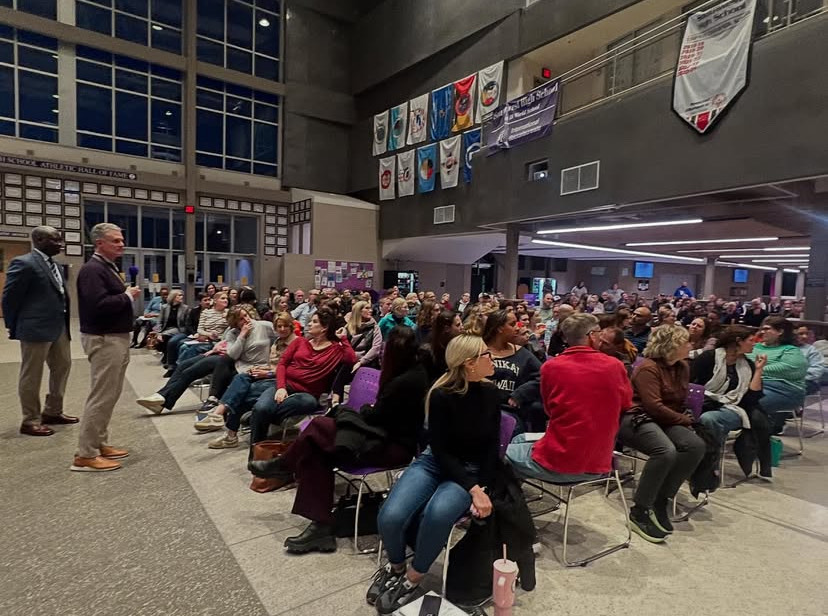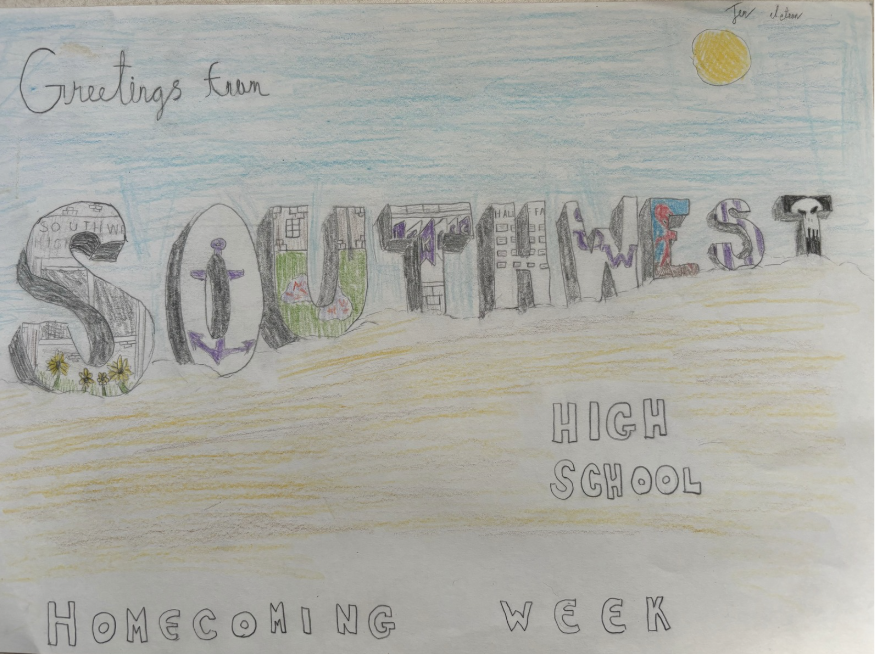It’s no secret that as the years go on, more and more cuts need to be made to Southwest’s budget and the Minneapolis Public School District’s (MPS) budget as a whole. The predominant causes of this decrease in available funds, directly from the MPS website, are “chronic underfunding of public education, multiple years of declining enrollment, increased cost of operations, and the loss of federal COVID-19 emergency funding.” The total budget shortfall for Minneapolis Public Schools in the next school year is $75 million.
Minneapolis Public School’s funding is based on the number of students enrolled, so the fact that it is currently at 65% of the full capacity that the school buildings can hold is proving to be a serious detriment to the funds. Past statistics, it is even glaringly evident to students that there aren’t quite as many people in our schools as our older siblings had.
Some could argue that the fiscal year 26 budget overview slides that are provided on the MPS website are misleading. Despite the fact that it is common knowledge that there are going to be extreme and detrimental budget cuts in the coming school year, it shows at the very start of the slideshow that the school allocations budget will have an increase from fiscal year 25’s $366.9 million budget to fiscal year 26’s projected $374.25 million and the proposed $385.71 million.
Unfortunately, the area of the budget that is receiving the biggest cuts is special education. Though there is not yet an exact confirmed amount of money being cut from the special education budget, it has been said that there will be cuts of up to $16 million. Over 100 Special Education Assistants (SEAs) are going to be cut all over the district, and there is currently discussion of limiting special education classrooms to only two SEAs. This is a dangerous possibility as special education classrooms have a necessity for adequate support, and any SEA absences could become a serious crisis.
Special education funding is essential for schools because students with disabilities need the services it provides to have the equal opportunities for education, extracurriculars, and social development that their peers do. Extensive budget cuts increase the risk of students falling behind and giving them an egregiously unfair disadvantage in school that can prove to be a considerable setback for their futures on top of already being underrepresented. It seems counterintuitive that the students who need the most support and funding to receive adequate education and opportunities are the ones who are going to suffer the most at the hands of district budget cuts.
Cuts to special education are by far what is making community members and Minneapolis Public School families the angriest when it comes to discussion about the budget for next year. Parents, teachers, and community members are being very outspoken about their unhappiness with the special education cuts and are taking action to attempt to reduce them. Just recently on Saturday, March 22nd, there was a virtual town hall meeting to address and discuss the special education cuts. On Tuesday, March 11th, teachers rallied outside the school board meeting to protest special education cuts.
In addition to proposing potentially harmful budget cuts, the district has not been particularly transparent about fund allocation and what exactly will happen in the coming school year. There has been no indication of how the special education budget that we will have next year will be distributed, so we are left to rely predominantly on hearsay to get information on the potential ramifications of decreased funding.
Special education is not the only thing that is facing potentially detrimental cuts. Because of just how large the budget shortfall will be, it is impossible not to make cuts to many aspects of the school system. For example, there are concerns that the federal government will have cuts be made to Title 1, which is what provides funding to schools so that they can support low-income students. Another result of budget cuts will be decreased staffing across the district.
Specific to Southwest High School, the budget is decreasing by a total of $1.5 million. The projected Southwest budget for 2026 is $9.2 million, which is a stark difference from the budget in 2022, which was $13.5 million. This downwards trend is directly related to the decrease in enrollment. The projected student enrollment at Southwest for next school year is 1144 students, which is a 48 student decrease from this year’s 1192 students. For Southwest’s special education budget, the fund allocation as of May 5, 2023 was $2,167,670, which is now all the way down to a proposed $1,761,644 for fiscal year 2026, as of March 3rd.
Budget cuts will directly be affecting your classes for next school year. The classes that will not be offered for the 2025-26 school year are Francophone Cinema, IB Film, IB Philosophy, IB Theater, Journalism, and Lifeguarding. Additionally, cuts will be made to staffing, which means that some of your favorite teachers might not be returning next year. The total staffing cuts for 2026 will be 8.1 full time positions (FTE), which means cuts of 0.6 FTEs in performing arts, 1.0 FTEs in health/PE, 1.0 FTEs in science, 1.4 FTEs in english, 1.6 FTEs in social studies, and 2.0 FTEs in math. Some cuts to staffing may mean that a teacher will no longer be teaching a certain class and don’t always necessarily mean that the teacher won’t be returning at all.
The budget for next school year will be officially finalized on June 10. There is still time to rally and protest against budget cuts that will affect not only special education students, but every Minneapolis Public School student. If you want to make a significant difference, fight for the change you hope to see in your education before it is too late.
One service that you can easily utilize to do this is the public feedback portal that can be found on the Minnesota Department of Education website (education.mn.gov). Students, teachers, parents, and community members can all put in reports on how federal education cuts and Executive Orders that have to do with education are affecting schools. Though it is not specific to Minneapolis Public Schools, it is a way to use your voice to better your education and school communities.
Most importantly, ensure that you continue to educate yourself on all new developments that relate to budget cuts, fund allocation, and the changes that are being made for next school year. Being aware of everything that will happen as a result of decreased funding is the best way to prepare for difficult changes.






